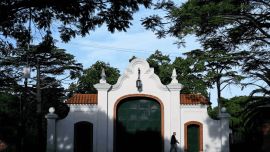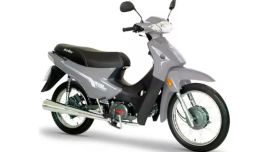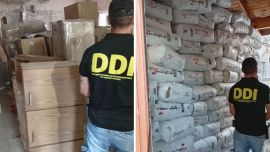Venezuelan opposition candidate Edmundo González Urrutia has not sought asylum, his lawyer said Tuesday, as the international community slammed an arrest warrant issued over his insistence that he won the July presidential election.
The Venezuelan public prosecutor's office said Monday that a court had approved its arrest warrant for González Urrutia over "serious crimes" related to the opposition's claim that President Nicolás Maduro and his allies stole the election.
González Urrutia, who has been in hiding since shortly after the July 28 polls, had ignored three summons to appear before prosecutors as part of their investigation.
"No asylum has been requested," José Vicente Haro told reporters outside González Urrutia's house in Caracas. "That is a matter that has not been raised by the family or Mr Edmundo González Urrutia."
The arrest warrant prompted an outcry from the international community, with the United States, the European Union, and nine Latin American countries rejecting it outright.
US National Security Council spokesman John Kirby told reporters that Washington and its allies condemned the "unjustified arrest warrant."
He called the action "just another example of Mr. Maduro's efforts to maintain power by force."
EU foreign affairs chief Josep Borrell wrote on X: "I categorically reject the arrest warrant."
"Enough of the repression and harassment of the opposition and civil society. The will of the Venezuelan people must be respected."
Argentina, Costa Rica, Ecuador, Guatemala, Panama, Paraguay, Peru, the Dominican Republic, and Uruguay said they "unequivocally and absolutely reject the arrest warrant," in a joint statement released by the Ecuadorean Foreign Ministry.
Disputed poll outcome
Venezuela's National Electoral Council (CNE), most of whose members are allies of 61-year-old Maduro, declared him re-elected to a third six-year term – an outcome disputed by the opposition and much of the international community.
The opposition published its own polling station-level election results, which it says show González Urrutia won the race by a landslide.
Those results are at the heart of the charges against the 75-year-old ex-diplomat, which include "usurpation" of public functions, "forgery" of a public document, incitement to disobedience, sabotage, and "association" with organised crime and financiers of "terrorism."
"No-one in this country is above the laws, above the institutions," Maduro said on Monday in his weekly television programme.
The United States and several Latin American countries support the Venezuelan opposition's claim to victory, while Maduro-friendly Mexico, Colombia and Brazil have refused to recognise the official result without seeing detailed vote tallies.
The CNE has said it cannot publish the records as hackers had corrupted the data, though observers have said there was no evidence of that. González Urrutia replaced opposition leader María Corina Machado on the ballot at the last minute after she was barred from running.
She, too, has been mostly in hiding since the vote, though she has led several organised protests against Maduro.
Plane seized by United States
Maduro has said both González Urrutia and Machado belong "behind bars," blaming them for the deaths of 25 civilians and two soldiers in protests that broke out spontaneously after his alleged victory was announced.
Nearly 200 people were injured and more than 2,400 arrested.
Since coming to power in 2013, Maduro has presided over an economic collapse that has seen more than seven million Venezuelans flee the country as GDP plunged 80 percent in a decade.
Last week, a blackout left most of Venezuela without power for hours on end in what the regime claimed was "sabotage" under a US-led plot to overthrow the socialist leader.
Maduro has managed to cling to power despite sanctions stepped up after his 2018 re-election, also dismissed as a sham by dozens of countries.
The United States on Monday seized the plane used by Maduro and his entourage, citing sanctions violations.
US officials took the plane in the Dominican Republic and flew it to Florida.
Maduro denounced the move as tantamount to "piracy."
by Javier Tovar, AFP



















Comments